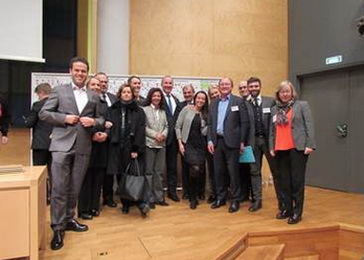 In the margins of the Social Summit last week, a conference on Social Economy in Gothenburg has been organised in cooperation with the EESC, Region Västra Götaland and the City of Gothenburg .
In the margins of the Social Summit last week, a conference on Social Economy in Gothenburg has been organised in cooperation with the EESC, Region Västra Götaland and the City of Gothenburg .
The objective was to attract political attention on the potential of social economy to foster economic growth, as well as social resilience and cohesion in the EU.
Ministers and State Secretaries from no less than 9 EU Member States (Bulgaria, France, Greece, Luxembourg, Portugal, Slovakia, Slovenia, Spain and Sweden) intervened to underline the importance of social economy in their country and to present their initiatives. In addition, a number of Social Enterprises gave real life examples of Social Economy’s action for employment, territorial development, circular economy, digitalization, etc.
Main themes:
- Social Economy is already playing an important economic and social role. It represents over 13.6 million paid jobs in the EU (equivalent 6.3% of the working population) and covers a wide variety of sectors. See more on the attached leaflet. A number of speakers emphasised the absence of contradiction between social and economic policies and the potential for Social Economy to scale up.
- The role of social economy enterprises (and cooperatives in particular) in fostering social resilience and fairer conditions of work.
- The development of ecosystems to support Social Economy – 2 very different best practices (Basque Country in Spain and Vastra Götaland region in Sweden) illustrated the local anchorage of social economy enterprises.
- The potential offered by the revised EU legal framework for public procurement to develop the market of social economy enterprises
- The opportunities offered by the cooperation between social economy enterprises and traditional enterprises, with a case study by IKEA Sweden
- The contribution that Social Economy can make to the implementation of the European Pillar of Social Rights.
 Government of the Republic of Serbia
Government of the Republic of Serbia


















 pdf [271 KB]
pdf [271 KB]
Leave a Comment